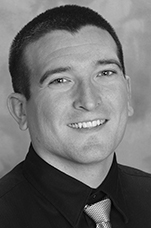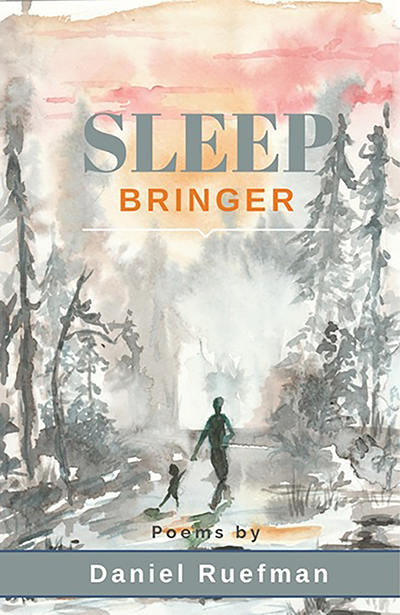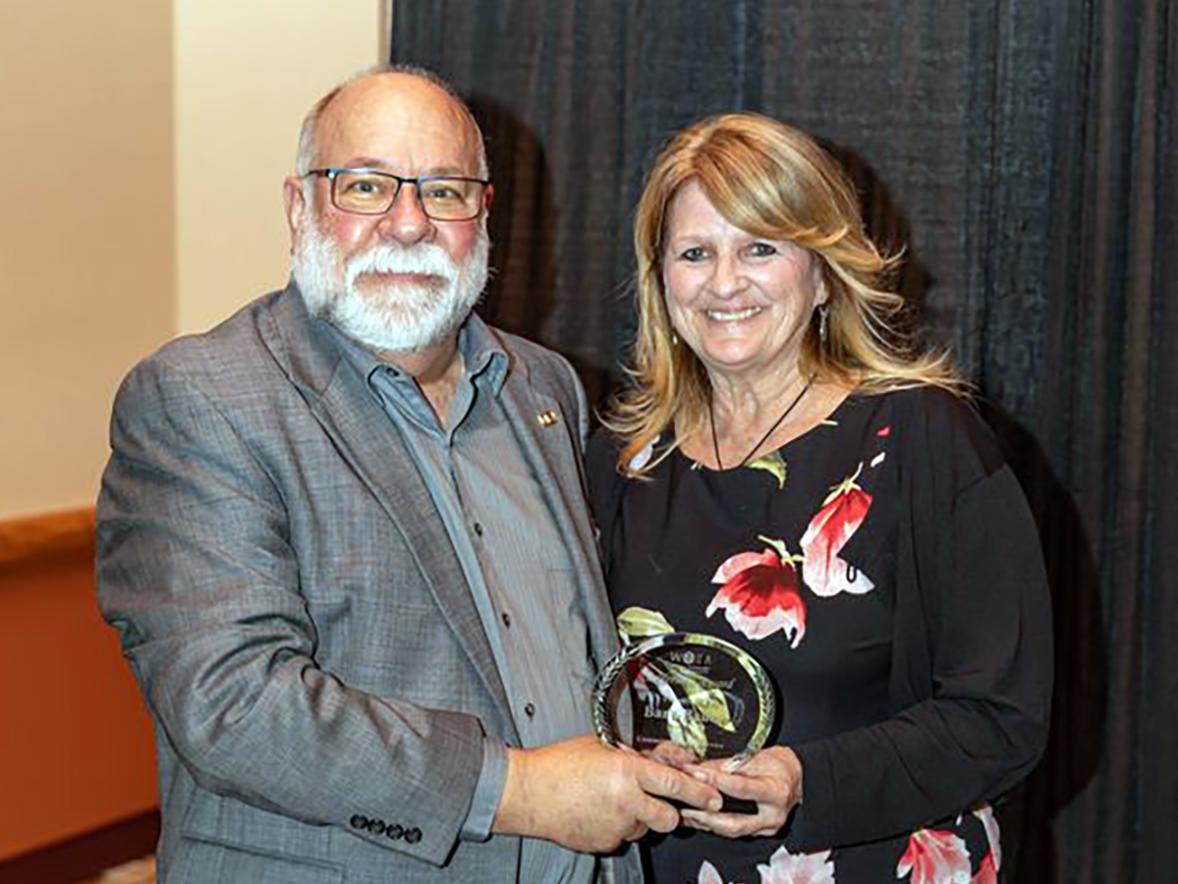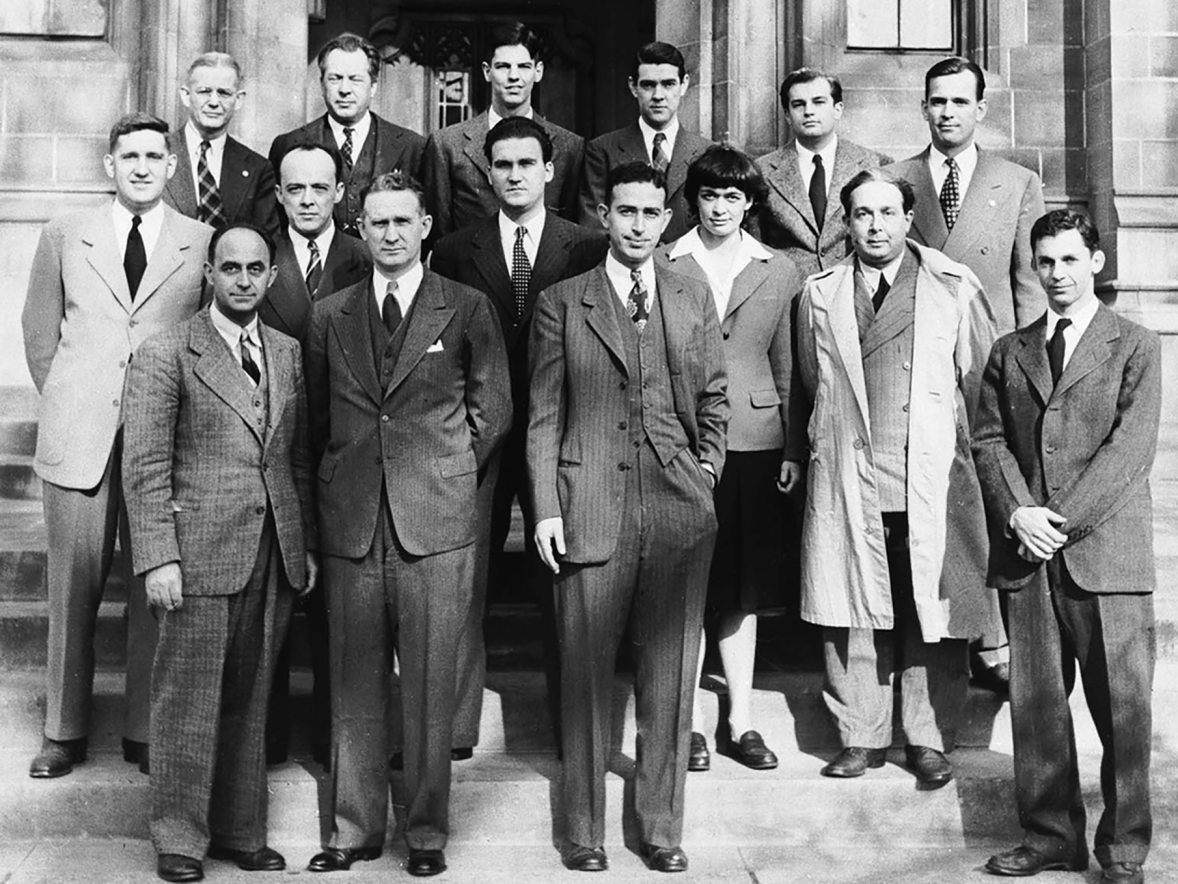Associate Professor Daniel Ruefman will read several poems from his forthcoming book, “Sleep Bringer,” as part of a UW-Stout faculty and staff literary event Thursday, Nov. 15, in Menomonie.
Sponsored by the university’s Literature Committee, the reading will feature 10 faculty and staff providing samplings of their poetry, fiction and creative nonfiction from 6 to 7:30 p.m. at the Raw Deal, 603 S. Broadway St. Snacks will be available.
 Ruefman, a native of Erie, Pa., who lives in Hudson, teaches creative writing classes. “Sleep Bringer” will be published in January by Finishing Line Press. It includes nearly 50 poems, mostly in narrative and free verse styles.
Ruefman, a native of Erie, Pa., who lives in Hudson, teaches creative writing classes. “Sleep Bringer” will be published in January by Finishing Line Press. It includes nearly 50 poems, mostly in narrative and free verse styles.
Some of the poems deal with the loss of an infant son., Alistair, in 2016. “It was a loss that my wife and I are still struggling to come to terms with, and a lot of the poems were my attempt to work through things. First the joy of having a new baby, of raising my surviving sons juxtaposed with the observation that there is a gap — someone is missing,” he said.
“Writing is largely therapeutic for me, and this collection is no different. It’s assembled thematically around fatherhood, child loss and the hope for healing,” said Ruefman, who has a PH.D. in composition and rhetoric from Indiana University of Pennsylvania.
A recording of Ruefman reading “Sleep Bringer,” the title poem, is available on YouTube.
 Ruefman, a member of the Academy of American Poets, has taught at UW-Stout since 2011. His poetry has been published in more than 30 periodicals, and in 2014 he released a chapbook of poems, “Breathe Automatic.” He also has published some fiction and nonfiction under a pen name.
Ruefman, a member of the Academy of American Poets, has taught at UW-Stout since 2011. His poetry has been published in more than 30 periodicals, and in 2014 he released a chapbook of poems, “Breathe Automatic.” He also has published some fiction and nonfiction under a pen name.
Recently, some of his poems were sold to Google for its new Google Assistant service. “So, if you go to Google’s Assistant and say ‘Hey Google, read me a poem,’ you may eventually hear one of mine,” Ruefman said.
Ruefman said reading and writing poetry has become more popular in recent years. “It’s very much alive,” he said, citing ebooks, online sources, a resurgence in the spoken word and because people with busy schedules find poetry generally less time-consuming to write and read than fiction and nonfiction. “It doesn’t take too much time to enjoy the art form.”
This is the inaugural faculty and staff reading; faculty-only readings previously were held.
Literature Committee Co-chair and Professor Lopa Basu hopes the event will continue. “I am very excited about starting this new tradition. Depending on community and campus interest, I would indeed like to make it an annual event.”
Basu was inspired to help organize the reading after taking part in similar events in Eau Claire. “I wanted an event that would focus on the creative writing talents of UW-Stout to emphasize our strong literary contributions,” she said.
She will be one of the featured readers along with co-chair Rickie Ann Legleitner, an assistant professor of English. Legleitner will be the emcee.
Basu is a published poet and has a book due out Dec. 15, “Ayad Akhtar, the American Nation, and Its Others After 9/11: Homeland Insecurity,” examining the works of the American playwright and novelist.
###
Photos
Daniel Ruefman
The cover of “Sleep Bringer,” a book of poems by Associate Professor Daniel Ruefman to be published in January.







